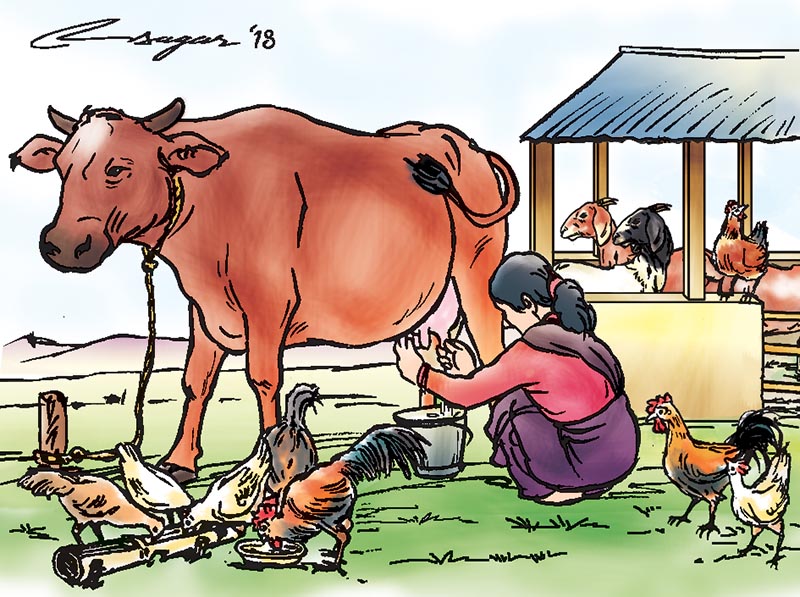SC directive to end inhumane transport of livestock
Kathmandu, February 11
The Supreme Court has issued a mandamus order today to formulate a new Animal Welfare Act and implement the Animal Health and Livestock Services Regulation effectively to ensure that farm animals are transported in a safe and humane manner.
A joint bench of justices Meera Khadka and Tej Bahadur KC issued the order.
Earlier, on August 27, justices Ishwor Khatiwada and Ananda Mohan Bhattarai had issued an interim order.
Advocate Padam Bahadur Shrestha and advocate Satkon Shrestha had filed a case on July 26, stating that the government had failed to implement the existing regulations and criteria regarding safe transport of farm animals. It had also demanded formation of a new Animal Welfare Act that would stop the inhumane manner of transportation of animals and other forms of torture inflicted on animals.
According to secretary of Slaughter House Association of Nepal Krishna Hari Bhatta, around 700 buffaloes, 1,500 goats, 5,000 chicken, and around 600 pigs are brought to Kathmandu on a daily basis. Buffaloes and goats are transported to Kathmandu in the most cruel manner as no humane standards are followed while transporting these animals.
According to advocate Shrestha, although there is Animal Health and Animal Livestock Services Act 1998, it does not mention anything about cruelty against animals during transportation. Shrestha said although Animal Health and Animal Livestock Regulation and Animal Transportation Criteria issued by DoLS clearly states about transportation standards,it has been ignored by the department itself. “With today’s order, the government is now required to form a new act, which will criminalise inhumane transport of farm animals,” he added.
The regulation and criteria states that the vehicle in which animals are transported should be animal-friendly and should be wide enough for them to move and breathe comfortably. Animals should not be confined to a vehicle for more than eight consecutive hours without unloading them for feeding, water and rest. There should be a caretaker in the vehicle
for animals.
It also prohibits transportation of animals in public vehicles and pregnant and lactating animals must not be transported.
Similarly, the regulation also requires establishment of quarantine posts on highways and at animal collection centres to check the health condition of animals and ensure that they are not suffering from diseases.
Despite the regulations, transporting excessive number of buffaloes in congested manner with their nostrils tied with rope in the vehicles, transporting goats by keeping them inside vehicles and transporting hens and ducks tying them upside down with a rope on motorbikes and bicycles are common practices inside the valley.






